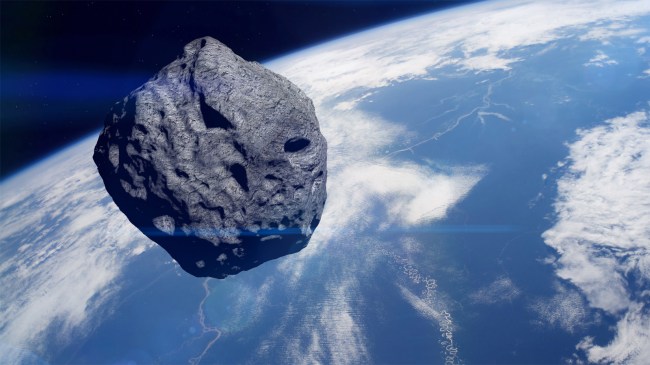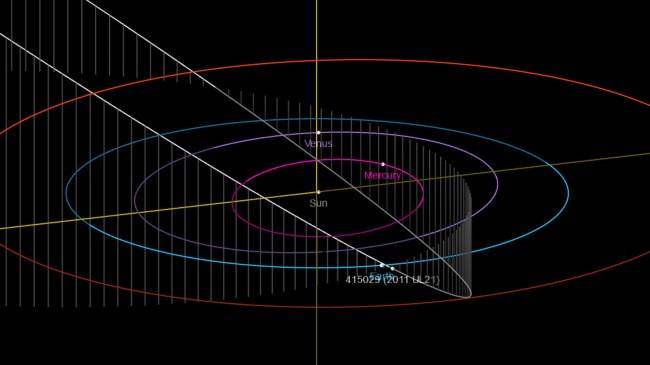iStockphoto
Mountain-sized “planet-killer” Asteroid 2011 UL21 is headed towards Earth this week and during its trip it will be making a very close approach to our planet.
The asteroid, classified as a Potentially Hazardous Asteroid (PHA) by NASA, is supposed to go zooming by Earth at 58,000 mph on June 27th.
Asteroid 2011 UL21 is also classified as a near-Earth object (NEO), which means that its orbit can move the space rock within 1.3 astronomical units (AU) of the sun. An AU is the average distance between Earth and the Sun, or about 93 million miles.
This asteroid is no tiny space rock either. According to SpaceReference.org, it is comparable in size to Mount Everest – Earth’s highest mountain above sea level – and is between 1.1 and 2.4-miles wide.
Needless to say, a 2-mile wide rock traveling at 58,000 mph would definitely “kill” our planet.
Thankfully, the asteroid will only pass Earth at a distance of around 4.1 million miles. Still, that is the closest it will have come to Earth in the past 110 years, at least.
And while 4.1 million miles may sound like a great distance, in terms of space it isn’t so much. By comparison, Mars is 245.22 million miles from Earth.
According to Gianluca Masi, astrophysicist and director of the Virtual Telescope Project, “There is absolutely no risk for our planet.”
“The term ‘Potentially Hazardous Asteroid’ (PHA) is a precise formal definition, referring to minor planets larger than approximately 140 meters that can come within 7.5 million km from the Earth,” said Masi. “In other words, only the largest asteroids capable of approaching close enough to our planet are flagged as PHAs, which does not mean they are going to hit the Earth, but they nonetheless warrant a better monitoring.”
That being said, there is always the possibility that the gravitational tug of Earth could alter the “planet killer” asteroid’s orbit (called the Yarkovsky Effect). And if that were to ever occur there isn’t much we could do to stop it.


